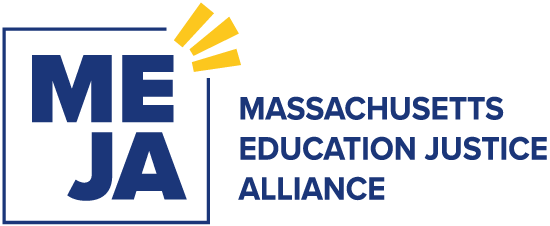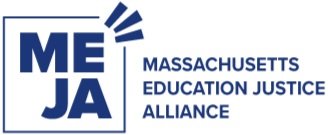MA Education Justice Advocates Praise Full Funding of Student Opportunity Act and Higher Education Investments in Healey Budget, But Express Alarm over Tax Giveaways to Wealthy
FY24 Makes Major New Investments, But Tax Cuts for Wealthy Threaten State’s Long-Term Ability to Fully Fund Public Education from PreK-College
BOSTON – The Massachusetts Education Justice Alliance - Education Fund today praised Governor Healey for fully funding the Student Opportunity Act and investing in the state’s public colleges and universities in her proposed FY24 budget.
“The major increases to public education funding in this budget would make a real difference for students, and help our school districts and public college campuses tackle the many challenges that students face,” said Vatsady Sivongxay, a public school parent and Executive Director of the Massachusetts Education Justice Alliance - Education Fund. “While further action is necessary to ensure that state education aid reflects the actual costs of inflation for local school districts, we appreciate Governor Healey’s leadership in continuing the implementation of the Student Opportunity Act on schedule. And while even greater investment over multiple years will be necessary to make our public colleges truly affordable, we are pleased to see Governor Healey prioritize affordability for our state’s public college students, especially low-income and first-generation college students.”
The Governor’s proposed FY24 budget includes a record $6.58 billion appropriation for Chapter 70 local school aid, a 9.8 percent increase over the current FY23 budget. That represents the third year of a six-year implementation of the state’s landmark school funding law, keeping it on track to be fully funded by the 2026-2027 school year. It also includes a $370.9 million increase in funding for public higher education, a 23% increase over FY23. The new investments proposed this year follow decades of deep underfunding of the state’s public college system.
But the organization, made up of Massachusetts students, parents, educators, school and college staff, and education advocates, expressed alarm that major tax giveaways to the wealthy included in Healey’s budget proposal threaten the state’s long-term ability to fully fund public education from PreK through college.
“While this budget makes major new investments, they still seem small when compared to the enormous needs Massachusetts students face. We are only halfway to fully funding the Student Opportunity Act, and delivering the resources that students in high-poverty districts should have had all along. Our public college students are still stuck taking out tens of thousands of dollars in debt to afford a college degree, even when working multiple jobs to get by,” Sivongxay continued. “By spending hundreds of millions of dollars on permanent tax giveaways to the wealthy, the Governor’s budget proposal limits the state’s ability to make even greater investments in public higher education today, and threatens the state’s ability to fully fund public education from preK through college in future years. We urge legislators to build upon the Governor’s proposed investments in K-12 public schools and public higher education, and to prioritize sustainable investment in education over tax cuts for wealthy estates and investors.”
The Governor’s FY23 budget proposes $6.58 billion in funding for Chapter 70 education, and a number of additional education funding measures, including $503 million for the Special Education Circuit Breaker, $243 million for charter school reimbursement, $97.1 million for regional school transportation, and $28.67 million for homeless student transportation costs.
However, the proposed budget does not reflect the actual costs of inflation for local school districts, putting the state at risk of not meeting the ultimate spending targets of the Student Opportunity Act. The state’s Foundation Budget, which determines necessary levels of school spending, contains an inflation cap, which historically has been waived in the final version of the budget in years when actual inflation exceeds that cap. The Governor’s budget proposal does not waive the inflation cap in FY24, which means that state funding will not keep pace with the increased costs of daily operations and expenses such as goods, services, heat and electricity.
“If school districts’ operational costs increase and state funding doesn’t keep up, students suffer. Amid record inflation, state support needs to reflect the additional costs that our schools are facing, so that programs supporting students aren’t cut,” said Sivongxay. “We urge legislators to waive the Foundation Budget’s inflation cap to ensure that the ultimate goals of the Student Opportunity Act are met.”
The Governor’s FY23 budget proposes $152 million in new investments for financial aid and student success, including a $93 million expansion of the MASSGrant Plus scholarship program for low-income undergraduate students to cover part-time students and cover additional direct costs of attendance such as books and supplies. It includes $59 million to lock tuitions at UMass and state universities so that incoming students do not experience tuition increases once they are enrolled, and to freeze community college tuition and fees for one year. The budget also includes a 3% increase to campus operational funding, and $140 million for additional one-time investment in capital improvements to campuses.
“Due to decades of state underfunding, the high cost of tuition and fees is pricing families out of our public colleges and universities. Enrollment in our public colleges has dropped sharply, and we are not adequately preparing students to fill the jobs of our 21st century economy,” said Sivongxay. “The Governor’s investments move us in the right direction by prioritizing financial affordability and support for low-income and first-generation students, but we need even more urgency to make our public colleges truly affordable again.”
###
The Massachusetts Education Justice Alliance - Education Fund is made up of Massachusetts students, parents, educators, school and college staff, and education advocates with a shared vision: that all students, regardless of income, race, gender, identity, religion, birthplace, or abilities, have access to high-quality, equitable, and democratically controlled public education that addresses the educational needs of the whole student and where every student thrives to reach their full potential. Learn more at massedjustice.org.

